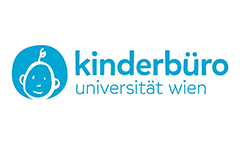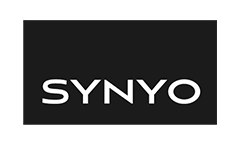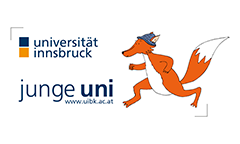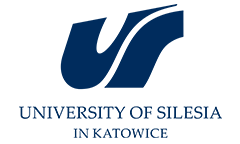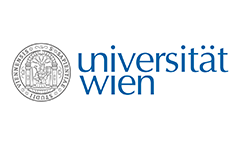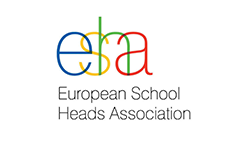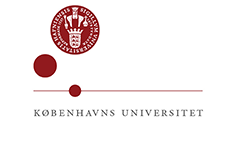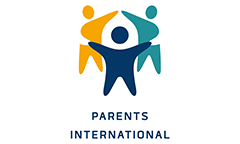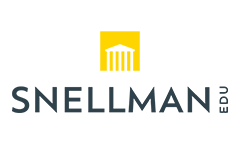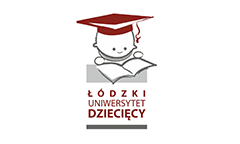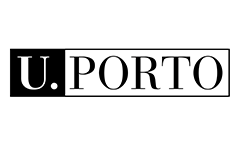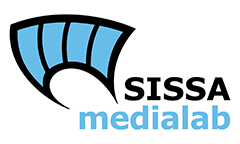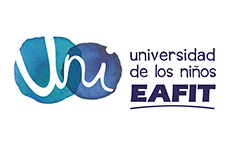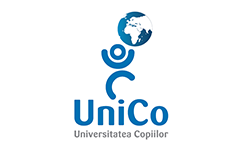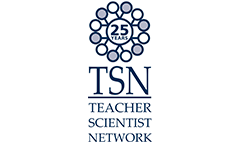Kinderbüro Universität Wien GmbH
Project Coordinator
More
Vienna University Children’s Office (KUW) was founded in 2006 as a non-profit academic spin-off company owned by the University of Vienna. Based on our initial experience with Children’s University as an innovative pilot initiative, Vienna University Children’s Office has gained recognition on national and international levels as a relevant actor in the sphere of science outreach and social engagement in a wider societal and institutional context. Since the beginning, we were operating on the interface between universities, science, arts and humanities – and society. We are continuously searching for innovative ways of engagement with children, young people and their families in the dialogue of science and society – with a special focus on social groups that are currently underrepresented in science, in (higher) education and in the societal dialogue in general.
Currently, KUW has 50 employed staff and a pool of continuous contractors from all relevant fields of experience and professional backgrounds.
SYNYO GmbH (SYNYO)
Project Partner
More
SYNYO is a research-based company focusing on social science, innovation and technology. It is located in 2 offices in Vienna, Austria. SYNYO explores, develops and implements novel methods, approaches, technologies and solutions in various domains with a particular focus on tackling societal, political, ecological and economical challenges. SYNYO analyses the impact of emerging technologies from different angles and from an interdisciplinary perspectives. The team at SYNYO consists of high-skilled employees specialized in several scientific and technical fields such Education, Social Sciences, Safety & Security, Migration and Smart Technologies.
The team of SYNYO consists of more than 25 employees working on national and international projects. The SYNYO consists of a broad variety of European and international partners, who are collaborating on projects, networks and services development. In 2015 and 2016 SYNYO was among the Top 3 most successful research-oriented SMEs in Austria (H2020 Performance Monitor by FFG).
University of Innsbruck, Junge Uni (UIBK)
Project Partner
More
The University of Innsbruck is a modern educational and research establishment for the region of Tyrol, South Tyrol, Vorarlberg and the Principality of Liechtenstein. It’s a full-scale university with 28.000 students and 3.500 employees. The “Junge Uni Innsbruck” – Science, Technology and Humanities for children and young people (http:/www.uibk.ac.at/jungeuni) is since 2001 an initiative of the University of Innsbruck with the object to raise the interest and the motivation of children and young people between 6 and 18 years in science and technology, to develop and administrate science activities and science learning in formal, non-formal and informal settings, and to work together with other stakeholders such as schools, local communities, universities and industry to raise the interest in science. In 2019 more than 7.500 children and teenagers came to our programs, 199 school classes took part in 182 interactive programs of the JUI.
Main objectives are: a) Stimulating young people on local and regional levels to become involved in science by showing that science is a natural human activity, which is fun and exciting, b) Presenting research and its results in common language, and using simple methods that the audience can apply at school or at home, c) Demonstrating how scientific investigations work and can solve well-defined problems, such as those facing modern society, d) Increasing the public understanding for science, technology and humanities. e) Doing research on evaluation of the impact of the activities in cooperation with the departments of Education, Sociology, school research and teacher´s education f) Profound experience in cooperation projects with schools and the Bildungsdirektion of Tyrol, with the department for children and young people of the city of Innsbruck, with private educational institutions (bilding, Arbeiterkammer Tirol – educational department, NATOPIA, etc.), with the Location Agency Tyrol. JUI works together with more than 40 local, regional and international partners, especially the cooperation with school partners (elementary schools, secondary schools, etc.) has developed very well. At the so called “Aktionstag” more than 100 school classes are invited to the University so get to know the research fields of the University and the scientists.
University of Silesia in Katowice (UNI SLASKI)
Project Partner
More
Founded in 1968, the University of Silesia in Katowice is one of the largest public universities in Poland. As an interdisciplinary university, the University offers a wide array of programs and specialized disciplines, including the humanities, social sciences, natural sciences, and science and technology. Every academic year this institution of higher education, with more than 2,000 teachers and researchers, offers to students over 70 programs and over 240 specializations, as well as postgraduate courses designed to improve professional and personal skills. The University of Silesia serves almost 22,000 intramural and extramural students educated at Bachelor, Master and Doctoral levels and it already has 250,000 alumni, among which there are outstanding personalities in many fields.
The Children’s University of Silesia is designed for children and organized by the university staff inspiring all children to learn beyond the classroom by fun activities, fascinating workshops, exciting events, educational parties, and a variety of multimedia activities (dzieci.us.edu.pl). The Children’s University of Silesia is a founding member of The European Children’s Universities Network EUCU.NET
Universität Wien (UNIVIE)
Project Partner
More
The chair for “Psychological Research on Education and Transfer” is located at the university’s Faculty of Psychology. One of our major research topics is “Promoting Lifelong Learning in Educational Institutions from a Psychological Perspective”. This research topic systematically integrates theoretical modeling, the development of innovative measurement approaches and intervention measures with corresponding implementation concepts.
Although scientifically founded innovations are generally recognized as important in education policy, systematic application and transfer are often lacking. Our work deals with the question how transfer and implementation of scientific findings in educational contexts can be more successful. Intervention research and implementation research are very established disciplines but they are poorly cross-linked and often anchored in very different research traditions. Against this background, we are concerned with the approach of “Integrative Intervention and Implementation Research” assuming that fundamental aspects of implementation and transfer have to be considered in the phase of the program conception already.
European School Heads Association (ESHA)
Project Partner
More
ESHA, the European School Heads Association, is a professional organization for European School Heads. Members of ESHA are national organisations for school heads and deputy school heads within (pre-) primary, secondary and vocational education. Nearly all European countries (both EU and non-EU) are represented within ESHA by one or more organisations.
ESHA is an international community in which experiences, visions and views between members are exchanged and in which new ideas are born. ESHA connects school leaders, researchers and policy makers with the collective aim to learn from each other and improve education.
University of Copenhagen (UCPH)
Project Partner
More
The Faculty of Science at the University of Copenhagen – or SCIENCE – is Denmark’s largest science research and education institution with 4,000 employees and 9,700 BSc and MSc students in 11 departments and the Natural History Museum of Denmark. The Faculty’s most important task is to contribute to solving the major challenges facing the rapidly changing world with increased pressure on, among other things, natural resources and significant climate change, both nationally and globally.
The Faculty outreach service also engages with school classes from 10-16 years of age. Practical and experimental activities is a core value in the outreach strategy, that also address challenges that calls for new solutions within STEM in order to create a sustainable society. The activities is facilitated by science students, working as communicators as well as being important role models for a educational choice in STEM.
The outreach service for lower secondary employs 50-60 science student communicators, 2-3 student coordinators and one fully employed head of outreach activities for lower secondary.
Stichting International Parents Alliance (IPA)
Project Partner
More
Parents International is established with the mission of supporting parents around the world to become game-changers by helping their children to grow up happy and healthy 21st century citizens. The basis of our work is the UN Convention the Rights of the Child, the only piece of legislation that establishes the rights and duties of parents for the best interest of their children globally (as it has been ratified in all countries except the USA). European parents have 30 years of experience working for protecting the rights of their children, but global challenges, as well as local ones that may be faced using inspiration from other localities call for a wider cooperation among parents from all over the world. This is the reason we work with experienced parent representatives and professionals, including teachers, social workers, researchers, psychologists, teacher trainers, economists, students, policy makers, youth workers, etc. who are interested in supporting parents.
Snellman EDU’s Children University (SNELLMAN)
Project Partner
More
Snellman Summer University’s Children’s University collects around 400 children annually around North Savo for various science fairs, courses or banners. The activity started in 2011 In co-operation with University of Eastern Finland. The range of education includes science, technology and humanities. In addition to providing children with access to the science world, we have also produced free science publications that can be used in schools, kindergartens and homes.
A Children’s University is based on the aims of
- Providing access for all children without boundaries and on a voluntary basis
- Involving and providing benefit for children from disadvantaged groups (including barriers caused by social or economic, impairment, language or gender)
- Providing an atmosphere of respect without pressure to perform
- contributing to the enhancement of universities as concerning organizational, didactical and research development
Children University of the Lodz University of Technology (TUL)
Project Partner
More
Children University (ŁUD) of Lodz University of Technology (TUL) was established in 2008. Its main goal is to induce curiosity in children, to stimulate their imagination and to encourage them to pursue an engineering career. ŁUD activities encompass lectures and workshops, mainly in STEM related subjects. Each year over 1,500 children aged 7-18 participate in ŁUD events organized by scientists of different domains.
During 12 years, almost 17,000 children aged 7-18 participated in events including 150 lectures and 6,000 workshops. ŁUD organizes trainings for schoolteachers, conferences for younger children provided by teenagers and contests in STEM related subjects for secondary schoolchildren. An important part is the voluntary program for elder children (aged 13+). ŁUD cooperates and shares experience with national and international partners. It is the founding member of European children university network EUCUNET. ŁUD hosted the first international EUCUNET children conference in Poland and participated in partnership programs. In PHERECLOS project ŁUD is to establish a LEC cooperating with a primary school and a foundation.
University of Porto (UPORTO)
Project Partner
More
The U.PORTO has a strong commitment towards society and has been consolidating its social responsibility through volunteering projects and the interaction with several local and regional civil associations in the organization of cultural, social and artistic activities. Being a truly international University, with 4.421 international students from around 100 nationalities, internationalization is one of UPorto’s strategic pillars and objectives, allowing the development of existing collaborations, as well as the establishment of innovative cooperation through the creation of active links with institutions from all over the world (more than 2500 active agreements). In recent years, the U.PORTO has coordinated and been involved in several projects, namely Erasmus+ (particularly International Credit Mobility, Erasmus Mundus Joint Master Degrees, Capacity Building and Strategic Partnerships) and Erasmus Mundus projects, which have greatly contributed to the reinforcement of its internationalization process and generated new cooperation opportunities through the development of projects and initiatives with HEIs from approximately 150 countries. U.PORTO is an institution definitely opened to the world. The Science Events and Extension Unit of the Public Relations Office of U. Porto is mainly concerned with interfacing with basic and secondary school pupils, but also with the public at large through the organization of specific events and programs (Junior University, Exhibition of Science, Teaching and Innovation, Researcher’s Night) or by taking part in school initiatives. The unit is also involved in science communication (as ‘mediators’) and as such helps to manage the educational service of the university’s botanical garden and develops projects in cooperation with science communication units or centres, cultural departments and local authorities.
Sissa Medialab (MEDIALAB)
Project Partner
More
Sissa Medialab is a company owned by SISSA – International School for Advanced Studies. It started its activities with the Journal of High Energy Physics (JHEP), the first electronic journal specialized in the field, and now produces and runs the series of journals that includes, in addition to JHEP, JCAP, JSTAT, JINST, PoS, JCOM, and JCOM América Latina. Sissa Medialab organizes events and educational programmes, produce innovative media to communicate science to different audiences, offers consultancy for the development of permanent and temporary exhibitions. It has collaborated with several universities and research centres, institutions and networks. Sissa Medialab has designed and implemented several exhibitions and provided scientific consultancy for the creation of science museums and science centers.
Since 2005 Sissa Medialab has organized training courses for the explainers of science museums, the science teachers, the scientists and researchers. Organized in several European countries, but also in the Americas and Asia, these courses have involved a total of thousands of participants.
University EAFIT Children’s University (EAFIT)
Project Partner
More
EAFIT Children’s University transforms scientific knowledge into active learning experiences to agitate curiosity, provoke intellectual joy, and foster critical thinking in children, young people, schoolteachers, professors, and other kind of mediators from diverse social backgrounds. To achieve this, the program comprises three lines of action: inter-disciplinary science workshops and events, science communication contents and science education research.
The activities of EAFIT Children’s University take place at EAFIT University campus as well as in other sectors of the city and the region, within the framework of projects developed for and with the local and national government and the private sector. The science communication projects of the program comprise radio broadcasts, an annual printed magazine for science communicators, science stories booklets, manifestos by children, website of questions asked by children and answered by researchers, among others.
Asociata Universitatea Copiilor (UNICO)
Project Partner
More
The Children’s University Association funded in 2010 in Bucharest, Romania, facilitates children aged 7-
14 the discovery of the land of science and knowledge, getting closer to the passionate researcher, founding answers to questions regarding the world around them, through practical and interactive activities that take place in Universities, laboratories or outside, through visits to museums and exploratory trips under the guidance of dedicated specialists. Our partners are the University of Bucharest (since 2010), the University of Agronomical Sciences and Veterinary Medicine (since 2011) and the University of Polytechnics, Bucharest (since 2014) but also different institutes of research and companies. Founding member of the EUCU.NET – European Children’s Universities Network – the Children’s
University Association has the mission of reforming education, in connection to the existing preoccupation in European space towards attracting the new generation responsibly to knowledge, cultivating values among young people and children and building their own personality, responsible, prepared to be change agents of the society.
Teacher Scientist Network (TSN)
Project Partner
More
TSN is a highly regarded science education charity that works closely with science teachers in Norfolk and North Suffolk in the East of England. Established in 1994, as the first formal partnership organisation to make links between the education community (teachers) and local science community (ie. scientists) enabling teachers to become engaged with ‘real science’ in a practical and hands-on way, boosting confidence and helping teachers update their science knowledge. In addition to partnering activity, TSN develops and manages an extensive ‘Kit Club’ (a lending library of science resources) loaned by schools for a small fee, and provides opportunities for Continuous Professional Development (CPD) focused upon science subject knowledge. TSN is also involved in a number of other projects supporting teachers in both primary and secondary phase at regional and national level. Our previous European project experience has been with the CarboSchools project (funded under FP7) and SciChallenge (H2020).

